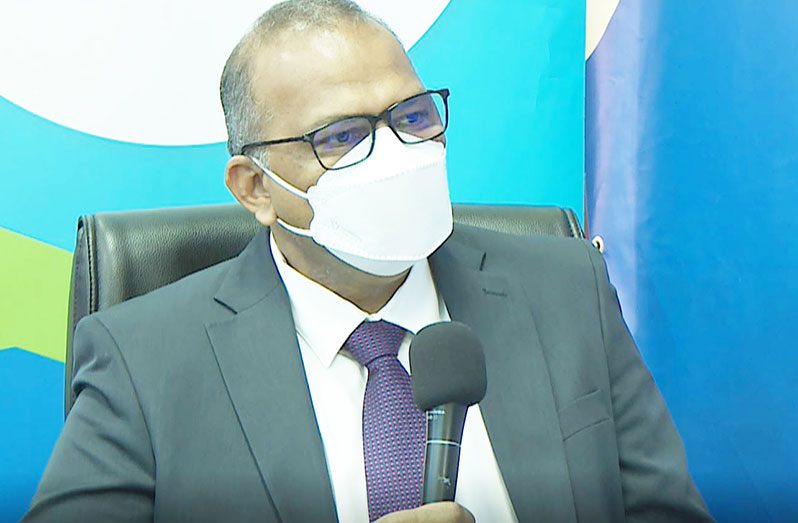KNOWLEDGE about ‘Long COVID’, the phenomenon experienced by some recovered COVID-19 patients, is growing with more research on the subject, but what is clear at this point, according to Health Minister Dr Frank Anthony, is that rehabilitation would be necessary for some of these patients.
The COVID-19 virus can affect any part of the body, but the most common symptoms have been linked to nose, throat, and lungs, Dr Anthony said during his daily COVID-19 update on Wednesday last.
“Most people are aware of COVID pneumonia, and that’s what a lot of people were having especially when we had the Delta Variant circulating.”
COVID pneumonia would prevent you from breathing properly, and that’s why we had to put a lot of people on ventilators,” Dr Anthony explained.
He said there were some hospitalised patients with complications which lead to shock ultimately resulting in the deaths of those patients.
Explaining that COVID is not only limited to the parts of the body that support breathing, Dr Anthony said the virus can also affect kidney functions.
“We would have seen persons who have recovered from COVID, they have some form of kidney damage,” the country’s top health official noted.
He said with persons experiencing after-effects of the virus, they “would have recovered from COVID would have to go through a period of rehabilitation to make sure that they can breathe properly and that they can walk distances, climb up steps without panting and blowing. So, this would take some time to recover.”
The COVID-19 virus first emerged in late 2019 but was first recorded in Guyana by the end of the first quarter of 2020.
Since then, researchers around the world have worked aggressively to learning more about the virus, while also building a vaccine that could reduce the effects of the virus on the population which has led to the death of millions of persons globally.
Dr Anthony said that with ‘Long COVID’, some persons have presented with heart problems, which is being monitored by health authorities.
The virus has also accelerated the progression of diabetes in some persons who were pre-diabetic before contracting the virus, Dr Anthony added, noting that these things must be monitored.
Turning attention to the brain, the Health Minister said some recovered persons have complained of temporary loss of memory and “brain fogs” which could commonly be seen as a person who loses their train-of-thought mid-sentence.
“That is generally caused by inflammation in the brain and because of that inflammation, these types of symptoms would appear… We have to monitor and make sure that we treat these conditions,” Dr Anthony indicated.
The Health Minister has long touted the establishment of a special unit at the Georgetown Public Hospital Corporation (GPHC) which investigates and treats persons with ‘Long COVID’.
At present, a team of multiple medical specialists has been established at the GPHC to support the work of understanding ‘Long COVID’, according to the Health Minister. Patients would be treated by any member of the team based on the specific symptoms they present.
COVID-19 vaccination numbers continue to rise, as 424,702 persons have received the first dose of one of the available vaccines, according to Dr Anthony’s figures, which represents 82.8 per cent of the adult population. He said 314,960 of those persons have received their second dose, representing approximately 61.4 per cent of the adult population.
Additionally, 32,703 adolescents between the ages 12 to 17 have received their first dose of the COVID vaccine, with 23,000 of those adolescents receiving their second dose.
With the health authorities already administering COVID-19 booster shots across Guyana, the number of booster shot recipients has climbed to 40,220 since the commencement of the programme late last year.




.jpg)










